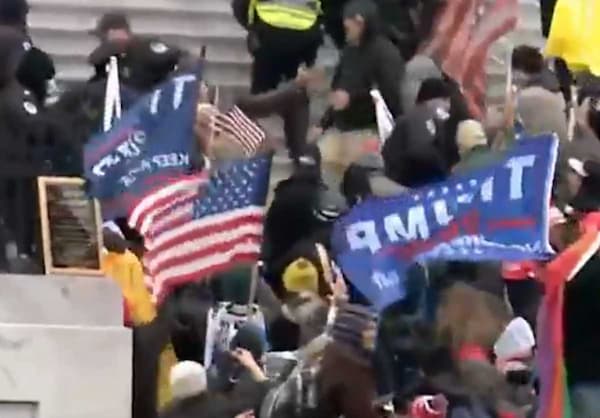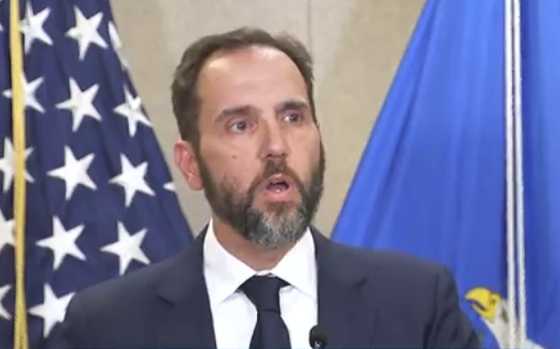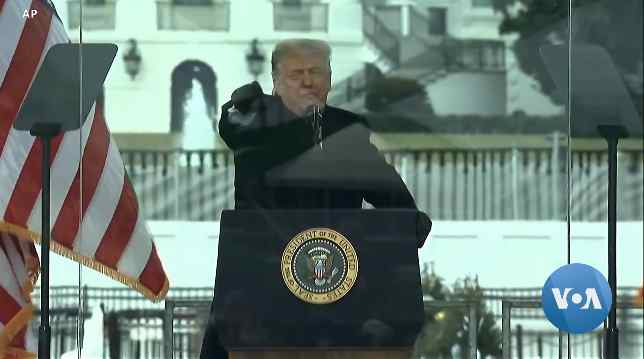WASHINGTON — Henry “Enrique” Tarrio, the former head of the far-right Proud Boys, was sentenced on Tuesday to 22 years in prison for his involvement in the January 6 attack on the U.S. Capitol, the longest penalty imposed so far for the deadly riot.
Tarrio’s sentence, handed down by U.S. District Judge Timothy Kelly in Washington came after four of his lieutenants last week received prison sentences of 10 to 18 years. The five were convicted in May of plotting the assault on the Capitol in order to block Congress from certifying the results of the 2020 presidential election and to keep then-President Donald Trump in power.
The attack injured nearly 140 police officers guarding the Capitol and was blamed for the deaths of five people. More than 1,100 Trump supporters have been charged in connection with the assault, with hundreds of others still being sought by the FBI.
Before Tuesday, the longest sentence imposed on a January 6 defendant was 18 years, which two people received: Stewart Rhodes, the founder of the Oath Keepers militia, in May, and Ethan Nordean, another Proud Boys leader, last week.
Although Tarrio was not at the Capitol during the bloody melee, prosecutors say he was the architect and “primary organizer” of the plot, directing the attack from outside Washington and later boasting about it.
“Make no mistake … we did this,” Tarrio wrote in an online message to a close-knit group of top Proud Boys leaders.
Tarrio and his four co-defendants – Nordean, Joe Biggs, Zachary Rehl and Dominic Pezzola – were tried together earlier this year for seditious conspiracy and other serious charges. All but Pezzola were found guilty of seditious conspiracy, a rare Civil War-era offense that carries a maximum of 20 years.
Last week, Nordean, Biggs and Rehl were sentenced to 18, 17 and 15 years, respectively, substantially less than what prosecutors were seeking. Pezzola, who dodged the seditious conspiracy charge but was convicted of other charges, received 10 years.
The Justice Department had recommended 33 years for Tarrio, saying the “naturally charismatic leader” and “savvy propagandist” had used his influence as chairman of the group “to organize and execute the conspiracy to forcibly stop the peaceful democratic transfer of power.”
“To Tarrio, January 6 was an act of revolution,” prosecutors wrote, seeking to add a “terrorism enhancement” to his sentence.
Seeking leniency, Tarrio’s lawyers denied he contacted or directed the Proud Boys on January 6. They also cited Rhodes’ 18-year sentence to argue for no more than 15 years.
In an emotional address to the court, Tarrio apologized to his family, law enforcement and lawmakers “for January 6,” saying there was “no place for political violence” in the country.
“I pray for unity for this entire country,” he said.
But Kelly, who presided over the Proud Boys trial and sentencing, wasn’t persuaded by Tarrio’s apology or effort to distance himself from the January 6 attack.
“I don’t have any indication that [Tarrio] is remorseful for the actual things he was convicted of, which is seditious conspiracy and a conspiracy to obstruct the election,” Kelly said before he sentenced Tarrio.
The attack of January 6, he said, disrupted the country’s long-standing tradition of the peaceful transfer of power.
What happened on January 6 “was extremely serious and a disgrace,” Kelly said, noting Tarrio’s leadership role in the plot.
[content id=”79272″]







